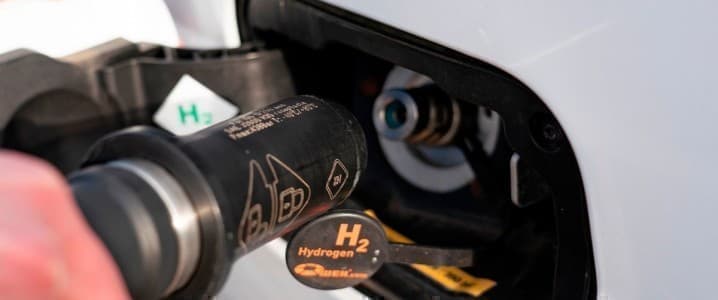If there is one thing everyone knows about the tiny northern nation of Iceland, it is that it has plentiful geothermal resources. Europe's northernmost independent state satisfies a solid portion of its energy needs with local renewable geothermal power. And these resources could now help Iceland become the world's first fully green hydrogen economy. Geothermal, according to Iceland's National Energy Authority, accounts for a quarter of the country's power generation and as much as 66 percent of Iceland's total primary energy use. Geothermal is also used to heat 90 percent of Icelandic households. And it is renewable.
Iceland is also ahead of other countries in utilizing hydrogen. With early plans to become oil- and gas-free by 2050, the country started using hydrogen buses in Reykjavik back in the early 2000s. Yet buses could be only the start of what could become the world's first hydrogen economy.
It is worth noting that Iceland is unique, and if it succeeds with its net-zero plans with hydrogen, it will hardly be possible to replicate it anywhere else. For one thing, it has unlimited geothermal resources and also abundant hydropower resources. For another, it is a tiny nation of fewer than 300,000 people. This means a lot lower energy demand than other countries. So, a technology as expensive as green hydrogen production has a better chance of being commercially viable in Iceland than virtually anywhere else.
"People say Iceland is a very small country and can't be copied. But it's a real society, with infrastructure similar to big societies," chemistry professor Bragi Arnason from the University of Iceland said back in 2005. "We can start in Iceland on a small scale," he added. Arnason has been called Professor Hydrogen for his work in the field. According to Arnason, when it comes to transport in particular, engine efficiency could offset the energy losses during the process of producing green hydrogen, thus offsetting part of the costs.
Theoretically, all this sounds very promising. In truth, the first attempt of Iceland to introduce hydrogen buses was scrapped shortly after its start because the technology had yet to be developed enough to make hydrogen buses viable. It did develop eventually, and in 2018, the EU provided funds for Iceland to purchase a number of hydrogen buses for its public transport system.
But hydrogen buses are only the start. In a 2009 paper for the International Association for Energy Economics, oil economist and consultant Mamdouh Salameh noted Professor Arnason's plan to make all vehicles and vessels in Iceland run on hydrogen, which can be produced locally at a cost considerably lower than in most other developed countries. He also noted a few challenges for the hydrogenization of the Icelandic economy—and any other economy, for that matter—chief among them which was cost.
Related: IEA Backpedals, Says Oil Demand Will Soon Reach Pre-Crisis Levels
Since 2009, the costs of producing most forms of renewable energy have fallen considerably, making them a lot more viable alternatives to fossil fuels than before. With hydrogen, however, things have moved more slowly because green hydrogen production is a picky technology that needs an optimal location for an electrolyzer near a water source and with good wind or solar energy generation potential.
With Iceland, this would be easier than in most other countries, thanks to its geothermal and hydropower resources and its small population. But the country has bigger plans than just domestic supply. Last year, Icelandic media reported the national power utility, Landsvirkjun, and the port authorities of Rotterdam had inked a deal for cooperation on hydrogen-related matters to find ways to make exports of green hydrogen from Iceland to Europe a reality.
While the agreement is quite general, it may be the latest indication that hydrogen, and especially green hydrogen, is moving nearer to becoming economical enough to produce on a large enough scale to export it.
By Irina Slav for Oilprice.com
More Top Reads From Oilprice.com:
- Oil Rises After ‘Cataclysmic’ Boardroom Showdown
- Moody’s: Credit Risk Is Growing For Big Oil
- Activist Investor Wins Exxon Board Seats In Day Of Reckoning For Big Oil


















